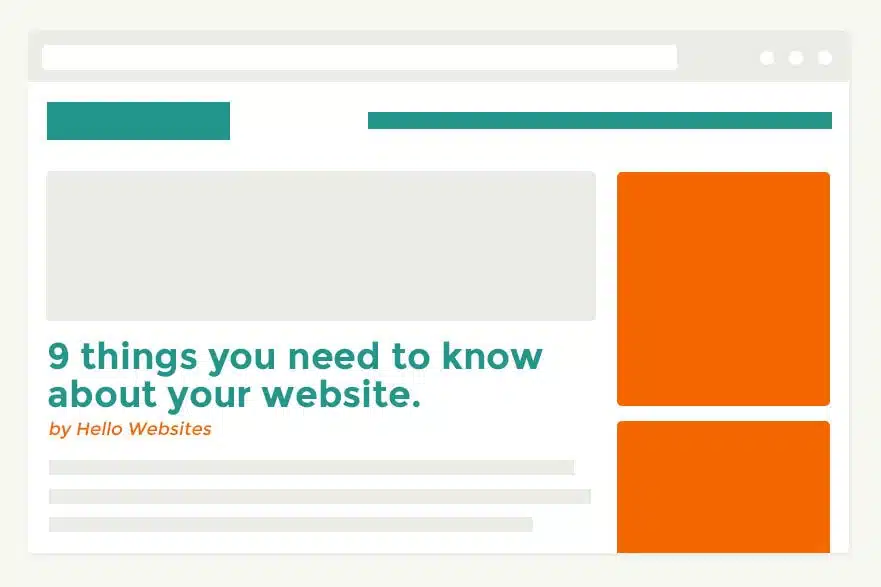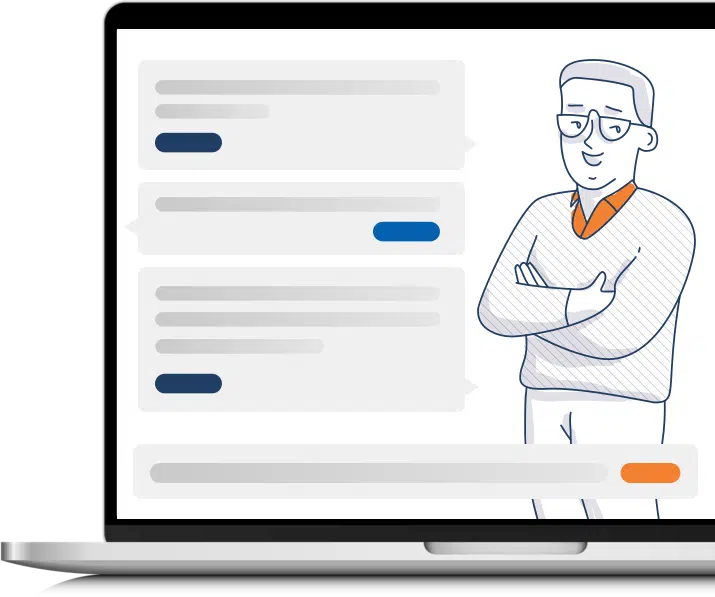

Even when businesses take the hands-off approach by contracting with a full-service digital marketing agency, it pays to know and understand some key details about your website, how it’s being used, and what the potential for growth over time is.
There are some details you should know about your website – and keep on record – at all time, even when you’re not considering updates or redesign projects.
1.) Who controls the website, really?
Do you know who has administrative access to your website’s files, CMS, or hosting? Who’s the registrar for your domain name – is it a member of your company, yourself, or the agency you work with?
2.) When was your last backup?
If something goes wrong, what will you have to re-build? Some websites go months or years without change – others are updated much more frequently, even many times daily. It’s important to know how secure that information is, and how much can be recovered in the event of a problem.
3.) What kind of external services are connected to your website?
Many dynamic websites use external files, such as APIs, connections to social media systems, validations for webmaster tools, and analytics services… The list of potential connections can be very long.
Knowing which systems you use, either to track your site’s usage or power the systems within it, is important in case those services change or stop working entirely.
4.) How much do you know about your traffic?
Analytics tools, especially Google Analytics (which is free) are very much par for the course right now. Do you know which of your websites’ pages and tools are being used? Which blog articles are being read? Which calls to action are being completed? All of this is key to understanding your website’s success over time.
For those looking at a redesign, or continual growth of their website through an ongoing strategy, the information needs are a little more detailed.
5.) Are there limitations on what you can change?
In some cases, businesses may not own the copyrights for their website’s design due to agreements with an agency. The portability of the site may also be an issue, either due to data ownership in the case of some API- or feed-heavy websites, or because a proprietary CMS is powering the site.
In others, there may be compliance issues for regulated industries which interfere with some desired website changes. It’s important to understand which parts of your website are actually under your control.
6.) Is the website serving your current business goals?
Failing to take advantage of the data provided by analytics tools and customer responses means losing momentum and missing opportunities. Have you lined your website up against your revenue, lead to close rates, or other key performance indicators? If not, it’s worth looking at.
7.) What do your customers think of the website?
How often do you interview your customers? Do you ask for testimonials once they’ve made a big purchase?
Measuring satisfaction is valuable – and there’s no reason not to do so on your website. Even if you’re just providing a simple form so visitors can provide feedback and ask questions, knowing what people actually think will let you make decisions about matching your website to your business goals in a much more meaningful way.
8.) Are you meeting current web standards?
Web standards are important for a lot of reasons; they ensure your website functions properly in different computing environments, looks the same regardless of what browser or device may be displaying it, and can be repaired more easily if something goes wrong.
Certain web standards are also important for visibility, especially in search. Mobile friendly websites, for example, are ranked differently in mobile search as of April this year. Ensuring your site is up to the w3c standards can also have an impact on the site’s accessibility – compliance with which is mandatory for some industries.
9.) If you’re changing your content, do you have a plan for link equity?
Priorities change as your business grows – and your website needs to reflect those priorities. However, any website with a history behind it will have built up a lot of references – in the form of social media posts, links from other websites, or even user bookmarks and links in personal email messages.
If your redesign or rebranding project is going to be changing the internal structure of your website, do you have a plan for retaining all that link juice? There are many ways to handle this issue – the most common being to create a strong set of 301 redirects (telling browsers and search engines your content has moved permanently) to new addresses. It’s important to understand the impact your changes will have on your existing visitors and the search visibility you currently have.
No matter the stage your website’s at in its lifecycle, understanding the details is important.
This kind of list is just a start – but we want you to think about the critical details of your website, and all of your online properties, because it will help you increase the value of those properties over time.
If you’re considering a redesign – or if you’re just not sure about the current state of your website – leave a comment below or get in touch with us.
Source: Hello BLOG
Recent Articles
Write For Us
Think you’ve got a fresh perspective that will challenge our readers to become better marketers? We’re always looking for authors who can deliver quality articles and blog posts. Hundreds of your peers will read your work, and you will level up in the process.Ready to grow? Say Hello








